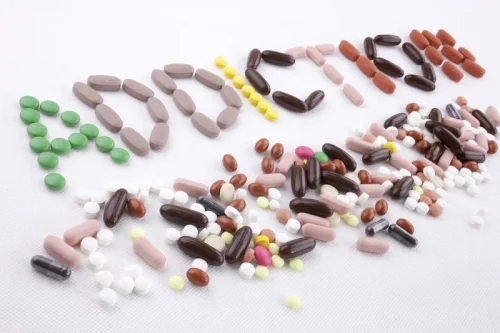Doenças
5 min leitura
Alcohol’s Effects on the Body National Institute on Alcohol Abuse and Alcoholism NIAAA

Your body attempts to quickly pass out the alcohol in your urine. This will leave you feeling badly dehydrated in the morning, which may cause a severe headache. After drinking 8 to 9 units of alcohol, your reaction times will be much slower, your speech will begin to slur and your vision will begin to lose focus. Dependent drinkers with a higher tolerance to alcohol can often drink much more without experiencing any noticeable effects. The treatment of alcohol dependency involves a variety of interventions, and it requires medical, social, and family support.
Drinking Levels Defined

Alcohol use can factor into mental health symptoms that closely resemble those of other mental health conditions. Chronic drinking can affect your heart and lungs, raising your risk of developing heart-related health issues. Over time, drinking can also damage your frontal lobe, the part of the brain responsible for executive functions, like abstract reasoning, decision making, social behavior, and performance. Alcohol makes you dehydrated and makes blood vessels in your body and brain expand. Your stomach wants to get rid of the toxins and acid that alcohol churns up, which gives you nausea and vomiting. And because your liver was so busy processing your drinks, it didn’t release enough sugar into your blood, bringing on weakness and the shakes.
Medical Professionals
In people assigned female at birth, consuming more than four drinks in one sitting is considered binge drinking. However, there may be legal, financial, or relational consequences for drinking heavily. Alcohol is one of the leading causes of death in the United States, contributing to approximately 178,000 deaths annually. Over time, alcohol use takes a toll https://ecosoberhouse.com/article/kudzu-extract-and-alcohol-addiction-can-it-help-you-drink-less/ on your body and increases your risk of over 200 health conditions.
Finding treatment for alcohol use disorder
The pulmonary or respiratory system includes the lungs, diaphragm, and trachea. The system allows air to reach the lungs, helps oxygen circulate through the blood, and removes waste gases. A .gov website belongs to an official government organization in the United States. Seizures, hallucinations, and delirium may occur in severe cases of withdrawal. Difficulty absorbing vitamins and minerals from food can cause fatigue and anemia, a condition where you have a low red blood cell count.


Within minutes of consuming alcohol, it is absorbed into the bloodstream by blood vessels in the stomach lining and small intestine. Alcohol is a legal recreational substance for adults and one of the most commonly used drugs in the United States. It can also be difficult for the body to process, putting extra pressure on the liver, the digestive system, the cardiovascular system, and other functions. Alcohol also limits the production of vasopressin (antidiuretic hormone) from the hypothalamus and the secretion of this hormone from the posterior pituitary gland.
Get the latest in health news delivered to your inbox!
- But there’s plenty of research to back up the notion that alcohol does lead to weight gain in general.
- Those who have built up a tolerance to alcohol can drink more than those with a lower tolerance level.
- Alcohol use can damage the hippocampus, the part of your brain responsible for memory and learning.
- While medications and other treatment methods can help manage the effects of pancreatitis, it is very difficult to reverse the condition.
- In the United States, moderate drinking for healthy adults is different for men and women.
Kindling is a problem that can occur following a number of episodes of withdrawal from alcohol. The severity of a person’s withdrawal symptoms may get worse each time they stop drinking, and can cause symptoms such as tremors, agitation and convulsions (seizures). After drinking 10 to 12 units of alcohol, your co-ordination will be highly impaired, placing you at serious risk of having an accident.
- If you drink every day, or almost every day, you might notice that you catch colds, flu or other illnesses more frequently than people who don’t drink.
- Alcohol addiction is a disease characterized by a strong craving for alcohol, and continued use despite a negative impact on health, interpersonal relationships, and ability to work.
- The article by Crews, Sarkar, and colleagues presents evidence that alcohol results in neuroimmune activation.
- This makes speech and coordination — think reaction time and balance — more difficult.
- University health services and policymakers should consider implementing comprehensive alcohol education and prevention programs that address the specific needs and challenges faced by college students.
- Clinicians have long observed an association between excessive alcohol consumption and adverse immune-related health effects such as susceptibility to pneumonia.
Alcohol and the Immune System
Excessive drinking may affect your menstrual cycle and potentially increase your risk for infertility. Alcohol use can begin to take a toll on anyone’s physical and mental well-being over effects of alcohol on the body time. These effects may be more serious and more noticeable if you drink regularly and tend to have more than 1 or 2 drinks when you do.
Alcohol’s Effects on Health
High scores were identified in 92 students (68 men and 24 women), which is 2.4% of the participants, and very high scores were noted in 86 students (61 men and 25 women), making up 2.2% of the total participants. A total of 4044 students participated in the study, consisting of 1.850 women (45.7%) and 2194 men (54.3%). Matej Bel University, Banská Bystrica (n-1066, 26.4%), Technical University of Košice (n-2769, 68.5%) and the Slovak Medical Universities, Faculty of HealthCare in Banská Bystrica (n-209, 5.2%). All participants willingly agreed to participate in the study and prior to their involvement.
Health risks of alcohol use
- Their article also highlights how the combined effect of alcohol and injury causes greater disruption to immune function than either challenge alone.
- Seizures, hallucinations, and delirium may occur in severe cases of withdrawal.
- Common health-related illnesses that stem from AUD but are prevalent in African American communities are liver disease, cirrhosis, hypertension, heart disease, oral cancer, stroke, and more.
- Depending on how often you drink and how much, you may need support from a healthcare professional if you want to stop drinking.
- Damaged DNA can cause a cell to grow out of control, which results in cancerous tumors.
Some examples include behavioral treatments, support groups, and FDA-approved medications. NIAAA can help people find information and resources about AUD and treatments that might work best for them. If you are on any medications, talk to your health care provider about how alcohol may affect them. Your immune system works to keep you as healthy as possible by fighting off foreign invaders, such as viruses, bacteria, and toxins. To your body, alcohol is a toxin that interrupts your immune system’s ability to do its job, thereby compromising its function.

General Health
The endocrine system consists of hormone-producing glands in the body. These hormones influence various functions, including growth, metabolism, and breathing. A person with AUD has an impaired ability to stop consuming alcohol, despite adverse consequences.